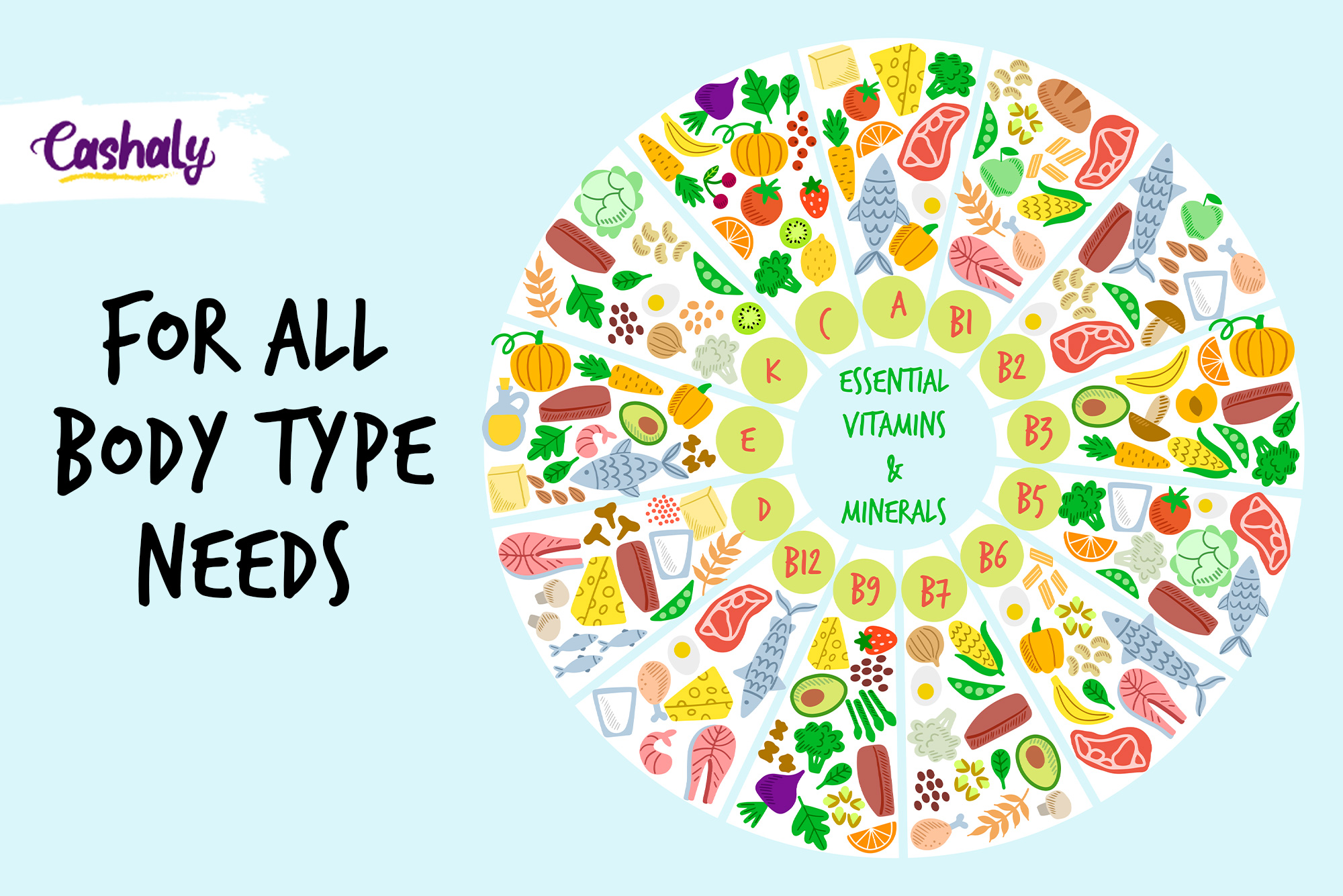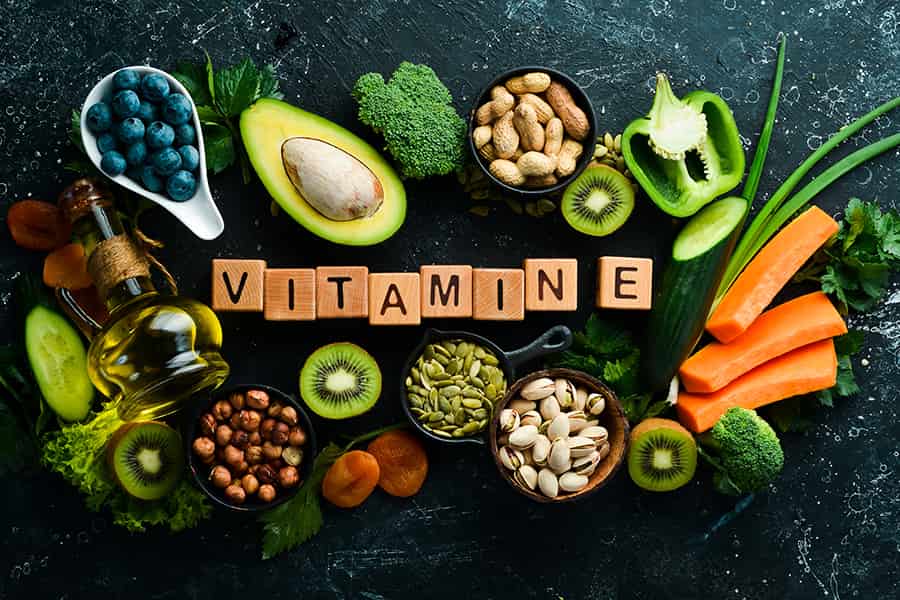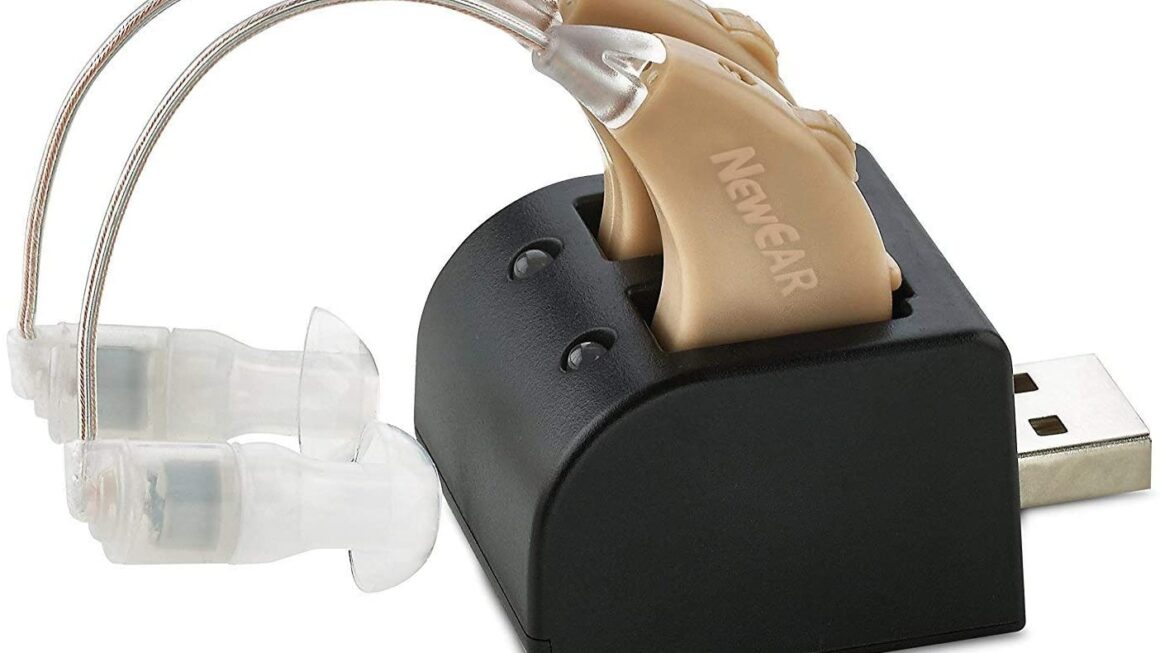Vitamins and minerals are essential for the proper functioning of the human body, along with other nutrients. Intake of these nutrients in the proper portion with proper food is also equally important. Today we will discuss a few essential vitamins and minerals you must have to prevent deficiencies. You can complete your daily nutrition with beatXP coupons through Cashaly.
Different foods contain different numbers and amounts of nutrients, which your body needs on a daily basis. We will understand the importance of these nutrients and which foods contain them in your daily diet.
Keep reading the blog to learn more about the essential vitamins and minerals all body type needs.
List of Vitamins
In this section, we will talk about five important vitamins that your body needs to function properly.
Vitamin A
Vitamin A is an essential micronutrient that cannot be created by our body. Therefore, we need to have a diet that consists of vitamin A. Our liver stores this vitamin until our body signals for it. It is bound to proteins before it is transmitted to the required place.
Different organs and parts of our body require Vitamin A, such as the skin, the lining of the respiratory tract, the gut, the bladder, the inner ear, and the eye. It helps in the daily replacement of skin cells and prevents infections.
Sources of Vitamin A: Dark green leafy vegetables; Orange-fleshed sweet potatoes; Carrots; Squashes/pumpkins; Yellow maize; Mangoes; and Papayas.
Vitamin B
Vitamin B in humans makes sure that the body’s cells function properly. They are the reason you feel energetic, as they convert food into energy, which is also known as metabolism. It also helps in creating new blood cells and ensures healthy skin, brain cells, and body tissues.
There are eight types of Vitamin B: thiamin (vitamin B-1), riboflavin (vitamin B-2), niacin (vitamin B-3), pantothenic acid (vitamin B-5), vitamin B-6, biotin (vitamin B-7), folate (vitamin B-9), and vitamin B-12. Together, they are known as the Vitamin B Complex, and every vitamin has its own function and importance.
Source: Seeds, Mushrooms, Grains, Sunflower Seeds, Potatoes, Papaya, and Beans.
Vitamin C
Vitamin C is an antioxidant that protects your body cells from the effects of free radicals. It is one of the essential vitamins your body needs and also helps form blood vessels, cartilage, muscle, and collagen in bones. The human body does not produce this nutrient; therefore, we need to provide it to our body through diet.
Deficiency of vitamin C can occur in various conditions, such as if the person smokes or is exposed to secondhand smoke, has gastrointestinal conditions, or if their diet does not include fruits and vegetables on a regular basis.
Source: Citrus Fruits, Berries, Potatoes, Tomatoes, Peppers, Cabbage, Brussels Sprouts, Broccoli, and Spinach.
Vitamin D
Vitamin D helps your body maintain healthy bones, an immune system, teeth, and other functions. You can take vitamin D directly from the sun, which is the best source. When you come into contact with the sun for a certain amount of time, your body produces vitamin D.
This is a fat-soluble vitamin that includes vitamins D1, D2, and D3. Other functions where vitamin D is needed include the absorption of calcium and phosphorus, regulating inflammation, and resistance to some diseases.
Source: Fortified soy milk, Mushrooms, Fortified cereals, Fortified orange juice, Fortified almond milk, Fortified rice milk, and sun.
Vitamin E
Vitamin E, as we all know, is healthy for the skin and works best as an antioxidant. It has also proven to be best for the eyes and a robust immune system, and it helps reduce the risk of dementia. Vitamin E is a group of eight soluble fats and is known for neutralising harmful chemicals that are free radicals.
Proper intake of Vitamin E may reduce the risk of heart disease, benefit non-alcoholic fatty liver diseases, manage dysmenorrhea, improve cognitive health, and improve lung function.
Source: Almonds, Sunflower Seeds, Tomatoes, Peanuts, Spinach, Pumpkin Seeds, Pistachio, and Broccoli.
List of Minerals
In this section, we will talk about the five important minerals that complete the nutrition value.
Iron
It is vital for haemoglobin, which is a protein, to have the right amount of iron, which helps in the transportation of oxygen in the blood. Iron plays an important role in building red blood cells. A person who is vegetarian needs to consume twice the amount of iron compared to a non-vegetarian.
Anaemia is one of the most common cases found in people with iron deficiency. Another blood protein known as ferritin, where around 25% of iron is found. It is a mineral that is not formed by the body and needs to be provided through food.
Source: Lentils, Spinach, Pumpkin Seeds, Chickpea, Cashews, Dark Chocolate, Peas, Kidney Beans, Nuts, Broccoli, and Raisins.
Calcium
Calcium is the mineral that is majorly found in bones and teeth and supports the body’s structure. A small percentage of calcium is found in blood, muscles, and intracellular fluids. This amount takes care of metabolic, neurological, and muscular functions.
Lack of calcium is mostly found in postmenopausal women, who need to supplement this with their diet. Your body needs Vitamin D to absorb calcium, which can be achieved through a healthy diet. Your body starts taking calcium from your bones if a sufficient amount of calcium is not provided by a healthy diet.
Source: Almond, leafy green vegetables, basil seed drink, beans, figs, sesame, oranges, nuts, and sunflower seeds.
Zinc
Zinc is an antioxidant that helps in wound healing, immune function, and treating diarrhoea. It is a trace mineral that your body needs a small amount of. It also helps the body produce protein and DNA, heal damaged tissue, and promote child growth and development.
A deficiency of zinc can lead to loss of taste or smell, poor appetite, depressed mood, decreased immunity, delayed wound healing, diarrhoea, and hair loss. As you need only a small amount of zinc in your body, you can easily ensure that you don’t fall under the zinc deficiency category.
Sources: Walnut, Brown Rice, Whole Grain, Legumes, Kidney beans, Almonds, Beans, Lentils, and Oatmeal.
Phosphorus
Phosphorus is responsible for building bones and producing energy in your body.The body won’t be able to absorb phosphorus properly if the calcium levels are too high, and the same applies to phosphorus in the case of calcium.Source: Nutritional Yeast, Sesame, Oats, Pumpkin Seeds, Walnut, Cashews, Legumes, Beans, and Lentils.
Magnesium
Magnesium is another essential mineral for the human body that contributes to over 300 enzyme reactions. It is also responsible for the functioning of muscle and nerve functions, regulating blood pressure, and supporting the immune system.
However, proper intake of magnesium can protect you from chronic diseases like Alzheimer’s disease, type 2 diabetes, cardiovascular disease, and migraines. You can easily figure out if your magnesium intake is correct or not. You might feel a loss of appetite, nausea or vomiting, fatigue, or weakness.
Source: Leafy Green Vegetables, Whole Grain, Seeds, Nuts, Peanuts, Peas, Lentils, Sunflower Seeds, and Spinach.
Conclusion
In this blog, we have discussed the essential vitamins and minerals that every body type needs. Most of these vitamins and minerals work together to attain the function that they need to perform. Proper meals with leafy green vegetables can provide most of the nutrition your body needs. Also, you can try supplements with Muscleblaze Coupon Codes through Cashaly to live a healthier lifestyle. Fresh food and maintaining a healthy diet are the keys to fitness.












